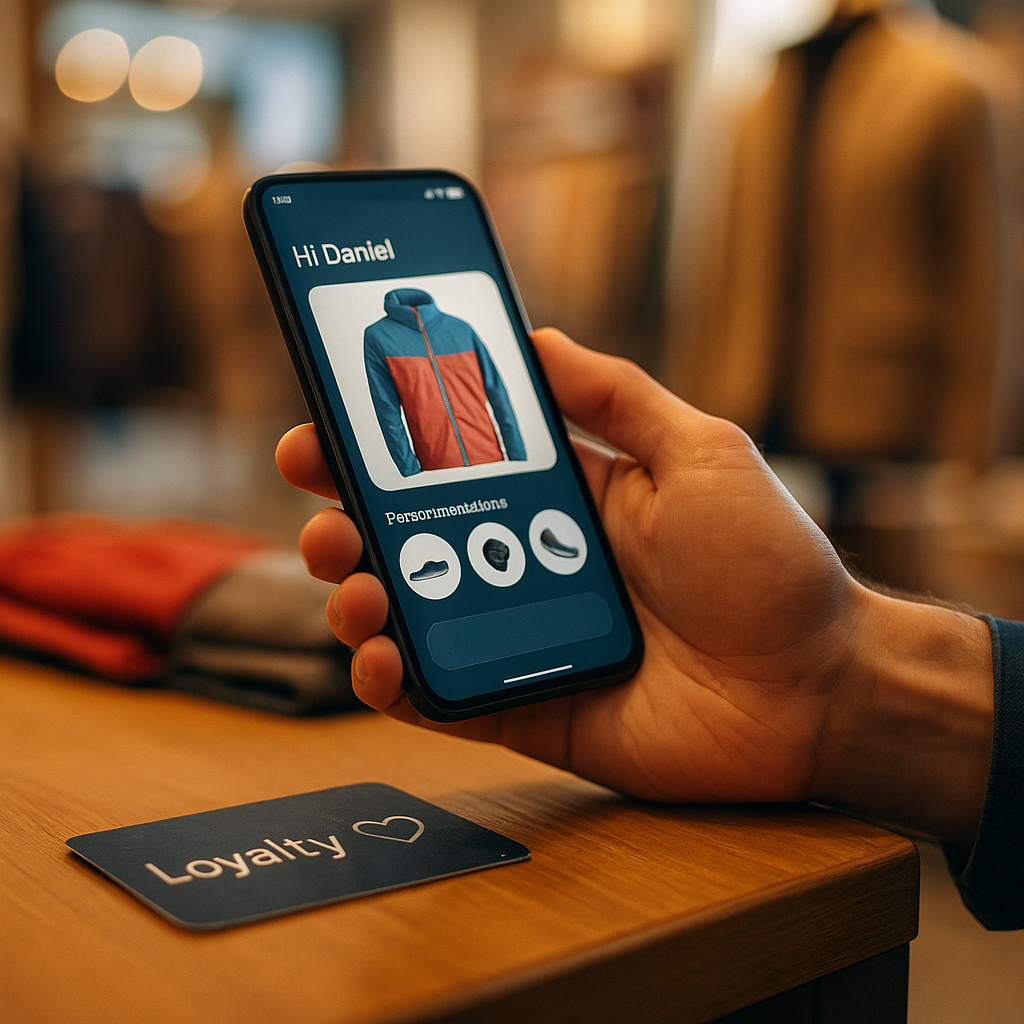Brand loyalty is evolving rapidly in 2025, driven by changing consumer expectations and advanced personalization technology. As brands strive to build lasting relationships, the future of brand loyalty rests on delivering tailored experiences at every touchpoint. What steps can businesses take to foster deeper connections? Let’s explore how personalized strategies are defining loyalty’s new frontier.
The Shifting Landscape of Brand Loyalty in 2025
In 2025, brand loyalty looks substantially different from years past. Today’s consumers are digitally savvy, value-centric, and bombarded with choices. According to a McKinsey survey from early 2025, over 70% of consumers are willing to switch brands when a better experience is offered elsewhere. This data highlights a stark reality: loyalty based solely on habit or product features is waning.
Loyalty now hinges on emotional engagement, values alignment, and uniqueness. Even established brands can’t assume repeat business without proactive effort. Customers expect authentic connections, seamless omnichannel experiences, and rewards that feel genuinely personal. To remain competitive, brands must rethink how they cultivate relationships in a world where switching costs have all but disappeared.
The Power of Customer Personalization to Drive Loyalty
Personalization is no longer a “nice to have”—it’s the cornerstone of loyalty in 2025. By leveraging data and artificial intelligence, brands can craft experiences that reflect each customer’s unique preferences, behavior, and needs. A recent Adobe study found that 90% of consumers are more likely to stay loyal to brands that remember them and offer relevant recommendations.
Modern personalization goes beyond a customer’s name in an email. It means tailoring products, services, and content in real time. For instance, a fitness apparel brand might recommend apparel based on a user’s recent workouts, climate, and body metrics. Retailers can suggest curated shopping lists based on purchase history and upcoming events. These micro-moments build lasting emotional bonds and make switching brands less attractive.
Leveraging Data Responsibly for Personalized Experiences
Effective personalization depends on rich, accurate data. But in 2025, consumers are more privacy-conscious than ever. Salesforce reports that 82% of consumers view data privacy as a deciding factor in where to spend. Brands face the dual challenge of earning trust and using data wisely.
Transparent data practices are now essential for brand credibility. Leading companies seek explicit user consent, explain the value of data sharing, and offer granular control. Paradoxically, when consumers trust a brand’s data stewardship, they are more likely to share information—enabling richer personalization. The result is a symbiotic relationship where both loyalty and privacy are respected.
Omnichannel Personalization: Seamless Experiences Across Touchpoints
Omnichannel personalization ensures that consumers enjoy a unified and relevant experience across digital and physical channels. In 2025, a customer’s journey might begin with a smartphone search, followed by an AI-powered chatbot conversation, and culminate in a personalized in-store event. Each touchpoint should reference the customer’s preferences and history.
The most loyal customers are those who feel recognized everywhere—whether they’re interacting through social media, mobile apps, or brick-and-mortar stores. Brands that integrate customer profiles and preferences across all channels boost satisfaction and retention. Modern CRMs and AI-driven tools make these 360-degree views possible, empowering staff to act on real-time insights at every interaction.
Innovative Loyalty Programs Fueled by Personalization
Loyalty programs have been reinvented in 2025, driven by personalization technology and changing consumer desires. Gone are generic point systems. Today’s programs offer:
- Dynamic rewards: Customized to reflect individual shopping patterns and life events.
- Experiential incentives: VIP access, early product trials, or exclusive content—aligned to the customer’s passions.
- Gamification: Adaptive challenges or missions that engage customers based on their interests.
- Social recognition: Programs that spotlight loyal customers in community settings, from social media shoutouts to curated events.
Brands like Starbucks, Sephora, and Nike have demonstrated how tailored loyalty programs can foster community, deepen engagement, and drive repeat business. The future lies in continuously evolving these programs with customer input and ongoing data analysis.
Building Brand Trust and Long-Term Loyalty Through Empathy
As automation and technology advance, human connection remains indispensable to loyalty. Empathy permeates successful personalization strategies—it’s the difference between “automated” and “authentic.” Brands winning in 2025 prioritize:
- Active listening: Monitoring feedback across channels and acting on what matters.
- Responsiveness: Addressing pain points or shifts in preference swiftly and sincerely.
- Purpose-driven engagement: Aligning loyalty efforts with values—sustainability, inclusion, or social impact.
Empathetic personalization affirms each customer’s individuality and strengthens loyalty even when competitors vie for attention. The emotional resonance ensures that loyalty endures beyond a single transaction or trend.
Conclusion: Personalization—The New Currency of Brand Loyalty
The future of brand loyalty inevitably revolves around deep, thoughtful personalization. Brands that deliver relevant, empathetic experiences—while respecting data privacy—will outpace those clinging to traditional tactics. In 2025, loyalty is earned, not assumed. To thrive, brands must treat every customer as an individual and continually invest in meaningful connections.
FAQs: Brand Loyalty and Personalization in 2025
-
How important is personalization for brand loyalty in 2025?
Personalization is critical—most consumers expect tailored experiences and are more inclined to remain loyal to brands offering relevant recommendations and interactions. -
What types of data do brands use for personalization?
Brands rely on purchase history, browsing behavior, preferences, feedback, and demographic information to deliver more personalized experiences—always ensuring data privacy and consent. -
How can brands personalize without intruding on privacy?
By being transparent, obtaining explicit consent, and giving users control over their data. Responsible brands clearly explain what data is collected and how it benefits the customer. -
Are loyalty programs still effective in 2025?
Yes—especially when tailored to individual habits, interests, and values. Modern loyalty programs rely on personalization, exclusive experiences, and dynamic rewards instead of generic perks. -
How do brands maintain loyalty across multiple channels?
By integrating customer profiles and ensuring consistent, relevant communication across online, mobile, and physical touchpoints, brands create seamless experiences that encourage retention.
